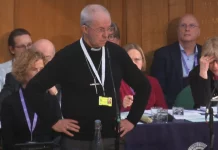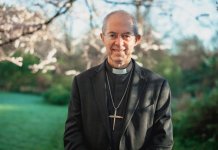In the pursuit of creating communities that are truly safe places for all, the concepts of independence and external accountability play a crucial role. Following the recent news from the Church of England about the challenges their Independent Safeguarding Board has experienced, we’re encouraging churches and organisations of all shapes and sizes to consider what steps they can take to establish a truly independent level of scrutiny over their own safeguarding arrangements.
Independence and accountability serve as a fundamental pillars in safeguarding, ensuring that the decisions and actions we take are free from undue influence or bias and are open to appropriate scrutiny. An independent view of processes, practices, and culture helps to instill a sense of trust and confidence, enables a fair and unbiased evaluation of situations, and prevents conflicts of interest from compromising the process or the outcome.
Independence acts as a safeguard against corruption and undue external pressure, guaranteeing that decisions and actions are driven solely by the pursuit of justice and the welfare of individuals. It allows all those involved to perform their duties with integrity, empowers individuals to act according to their expertise and professional judgment, ultimately enhancing the effectiveness of safeguarding efforts.
The sad news of the departure of the members of the Church of England Independent Safeguarding Board (ISB), who have persistently pursued their mandate to provide independent oversight and support the work of the Church of England’s National Safeguarding Team, is a significant setback in the progress made. It also highlights serious flaws in the way the Independent Safeguarding Board is structured in that it reports into the same body, the Archbishops Council, who oversee the day-to-day national and regional safeguarding operations that the Board has been set up to scrutinise. If a body is to exercise true independence, it must be fully independent and free from the structures and influences that it is created to oversee.
Justin Humphreys, Chief Executive at Thirtyone:eight comments, ‘While the Church of England considers its next steps, the instinct to quickly rush to “reset” the existing model should be resisted. Time should be taken to properly learn the lessons of what went wrong and why, and with the help of appropriate external expertise they must give time to understand what is needed to ensure a true and fully independent review of its safeguarding operations. This process should include victims, survivors and those with lived experience. To simply recreate what was, would be a travesty and would almost certainly be doomed to the same outcome as the arrangements we have just seen collapse.’
Independence and objectivity
To effectively address cases of abuse or misconduct, it is crucial to have processes in place that are independent of internal biases and external pressures. Independent bodies and professionals can objectively investigate allegations and make recommendations based solely on the merits of the case, free from the influence of hierarchy, personal relationships, or conflicting interests.
For smaller organisations, there are a number of ways this can be achieved, including having an independent review or audit of your safeguarding arrangements. Organisations should also consider adopting an accountability structure as part of their governing constitution and having trustees who are not part of the day-to-day leadership of the organisation who can fulfil the accountability role.
Where organisations find it difficult to find appropriate accountability mechanisms, organisations could explore with other local partners, arrangements for support, sharing best practice between each other and making themselves accountable to external leaders locally.
To do this appropriately, there should be clear parameters, appropriately documented, for how these arrangements will work and how information will be shared and managed.
If organisations are to avoid the accusations currently facing the Church of England of ‘marking their own homework’ when it comes to safeguarding, proper thought must be given to how a true level of independent scrutiny and support can be achieved.
By pursuing independent accountability, we create a society that acknowledges and rectifies mistakes, continuously improves safeguarding practices, and seeks justice for those who have been wronged.










